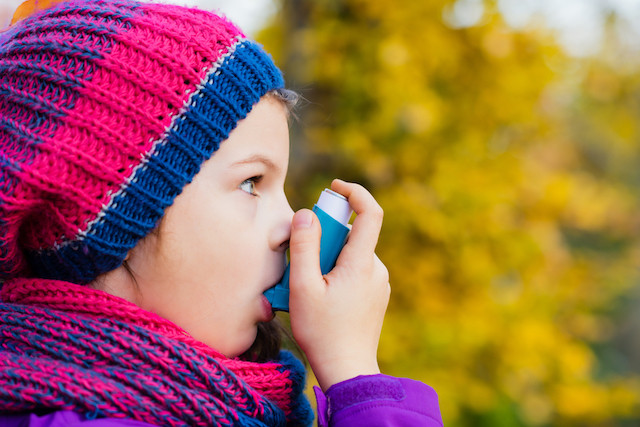Young Britons are dying from asthma at a higher rate than any of the other European countries examined in a new study, researchers have revealed.
Experts have found the UK is languishing near the bottom of an international league table for a host of problems, including obesity, lack of exercise in children and the burden of chronic health issues – and in many cases the situation is getting worse.
“Young people’s health is not high enough up the policy agenda,” said Ann Hagell, a co-author of the report from the Association for Young People’s Health, which published it with the Nuffield Trust.
Hagell said that was partly because the age group was largely seen as being fit and healthy, despite the report revealing almost 20% of 16- to 24-year-olds in the UK are living with a chronic health problem. Many services that benefit young people, including school nurses and sexual health services, have seen substantial cuts.
Improving the health of young people today would not only produce benefits now, Hagell said, but would also reduce health costs in future.
“If we don’t really start to seriously invest in our 10- to 24-year-olds, then things are only going to get worse,” she said, noting there had already been signs of a drop in life expectancy in the US and UK.
The report looks at how the UK fares on 17 different indicators of the health and wellbeing of young people – ranging from mortality rates to the proportion of young people out of work or education – with the findings compared against up to 18 other high-income countries including the US, Australia and Japan. The figures are based on the most recent data, but not all are from the same year, or cover the same age spans.
The UK does well on deaths from traffic accidents and mortality in general, with the latter showing the fifth-lowest rate for 10- to 19-year-olds of all 19 countries surveyed – although progress has stalled.
Strikingly, the UK comes near the bottom of the pack for deaths from asthma among 10- to 24-year-olds, with the fourth-worst figure across all 19 countries and the worst death rate in Europe, with a figure double that of the next worst European country in the study.
Recent work by others has found many asthma patients are not receiving basic care for the condition, and that asthma deaths in the UK are on the rise.
In particular, concerns have been growing about the role of air pollution in asthma. The death of nine-year-old Ella Kissi-Debrah from London as a result of an asthma attack has been linked to illegal levels of pollutants, while doctors say they have been shocked at the number of cases of children ending up in hospital choking with asthma, apparently as a result of air pollution.
The World Health Organization, meanwhile, has branded air pollution the “new tobacco” in terms of its impact on public health, saying statistics showing that it is behind 7 million early deaths a year are probably an underestimate. In the UK, air pollution is believed to be responsible for the deaths of about 40,000 people a year.
The new study finds smoking, drinking and cannabis use among young Britons is middling compared with other countries, with some signs that use is falling. However, 15- to 19-year-olds in the UK have the worst rates of obesity of the European countries at 8.1% – with prevalence rising.
“Obesity particularly is something that is influenced by the environment around you,” said Hagell, noting that availability of fast-food and the cost of healthy alternatives played a role.
The report comes a year after experts revealed that the UK was lagging behind similar countries on important health priorities for babies and young children, including breastfeeding and infant mortality, while progress in many areas, including vaccination, had stalled. Such conclusions are reflected in the emphasis put on health of children and young people in the recently released NHS long-term plan.
While the authors of the new research admit comparing across countries has drawbacks, not least because of different societal pressures, they say it shows more needs to be done to improve and support the health of the 11.6 million people aged 10 to 24 in the UK.
“The uncomfortable conclusion from the data is that our policies and health services are not performing to the same standard as those in other comparable nations, and we are letting our adolescents and young adults down,” the authors write. “It is to our own discredit that this is happening at a time when more and more adolescents and young adults themselves are making better choices around their health-related behaviours.”
They say money should be pumped into public health initiatives – where cuts have been severe – while both services and doctors need to engage better with young people.
Tackling poverty and inequality, they add, is also crucial to improving health: the UK was near the bottom of the pack for material deprivation and rates of young people out of work, training or education, while it has one of the biggest gaps in obesity between rich and poor.
Prof Chris Griffiths, co-director of the Asthma UK Centre for Applied Research, said the findings were disappointing but not surprising and that urgent action was needed by the government and NHS to improve access to high-quality asthma care and education.
“Technical advances may help, such as inhalers that electronically monitor and prompt adherence, and digital smartphone asthma action plans, but we need to deliver on the basics of good care,” he said.
Dr Lucinda Hiam from the London School of Hygiene and Tropical Medicine said the stalling in improving mortality rates among young people was a “red flashing warning sign of a society in trouble” and was probably linked to austerity policies.
“The deepening health crisis in the UK requires society-wide, political intervention,” she said. “The government must act urgently.”
